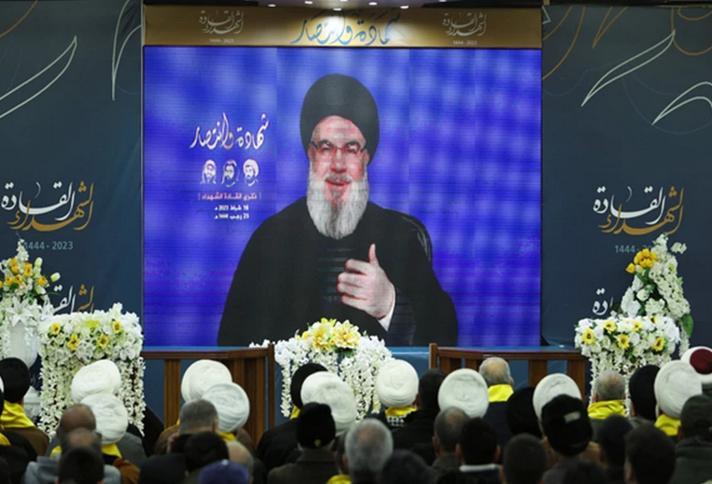
Lebanon rockets to Israel indicate growing Hamas-Hezbollah Cooperation
Israel accused Hamas, a Palestinian militia, of firing rockets into Israel from Lebanon, underscoring its deepening ties with Hezbollah, the dominant Lebanese militia. When an unusually heavy rocket barrage hit Israel from Lebanon this week, it was the latest reminder of a long-running enmity between Israel and Hezbollah, the Iran-backed Lebanese militia that dominates Lebanon’s southern borderlands.
Israel accused Hamas, a Palestinian militia, of firing rockets into Israel from Lebanon, underscoring its deepening ties with Hezbollah, the dominant Lebanese militia, The New York Times reported. When an unusually heavy rocket barrage hit Israel from Lebanon this week, it was the latest reminder of a long-running enmity between Israel and Hezbollah, the Iran-backed Lebanese militia that dominates Lebanon’s southern borderlands.
But it also added a new and portentous dimension to the conflict, according to analysts and military officials, it reflected a growing partnership between Hezbollah and Hamas, the hard-line Palestinian militia that the Israeli military accused of orchestrating the rocket strikes, likely with Hezbollah’s blessing, The New York Times reported. Hamas, a political, social and military movement founded in 1987, has run the Gaza Strip since 2007, after seizing it from the mainstream Palestinian leadership. It has since fought regular wars with Israel, often firing rockets at southern Israel from Gaza.
Hamas fighters have also carried out shooting and bomb attacks inside the occupied West Bank and Israel, which, like the United States, considers it a terrorist organization and maintains a blockade on Gaza, The New York Times reported. Now, Hamas is accused of armed activity in a fourth arena, Hezbollah’s strongholds in southern Lebanon.
Hamas praised but did not formally claim responsibility for the rocket strikes from Lebanon on Thursday, launched after Israeli police raids at the Aqsa Mosque in Jerusalem earlier this week. A spokesman for the group, Basem Naim, declined to comment when asked about it.
But the Israeli military announced that Hamas operatives, possibly working with another militia, Palestinian Islamic Jihad, had fired rockets from near the southern Lebanese city of Tyre. The area houses thousands of Palestinian exiles whose forebears fled there during the wars surrounding the founding of Israel in 1948, The New York Times reported. The suspected involvement of Hamas reflects its strengthened bond with Hezbollah and Hezbollah’s sponsor, Iran, both of which oppose Israel’s existence. The warming of those ties followed a period of cooler relations a decade ago when the groups backed different sides in the Syrian civil war.
Hamas, a Sunni Muslim group, backed the Sunni militias rebelling against the government, while Iran and Hezbollah, both Shia movements, sided with the Syrian government. But last year, Hamas mended its ties with Damascus, and in a hint of renewed coordination, fighters in a government-controlled part of Syria fired short bursts of rockets toward Israel early Sunday, prompting Israel to briefly return fire.
The rocket fire from Lebanon also suggests that Hamas is trying to find a way of maintaining its conflict with Israel without causing further harm to its stronghold in Gaza. Hamas’s repeated wars with Israel over the past two decades led to Israeli strikes that ruined large parts of the territory and killed thousands of Palestinians, The New York Times reported. By firing on Israel from Lebanon, experts say that Hamas can deflect attention from Gaza, lessening the likelihood of a major Israeli retaliation in the territory. While Israel did respond to the rockets from Lebanon by briefly bombing Hamas infrastructure in Gaza as well as southern Lebanon, the Israeli strikes were kept away from major urban centres and caused no reported injuries.
A senior Hamas official in Lebanon played down the idea that the group had recently strengthened its presence in Lebanon. Osama Hamdan, a longtime Hamas leader in Lebanon, said in a phone interview that relations with Hezbollah had always been warm, and declined to talk about Hamas’s military capabilities in Lebanon. Analysts and Israeli officials contend that Hamas has become closer to Hezbollah in recent years and more active in Lebanon, a process that accelerated after the election in October 2017 of Saleh al-Arouri as deputy chairman of Hamas’s political bureau, The New York Times reported.
Later that month, Arouri began to strengthen ties with both Iran and Hezbollah, visiting Tehran to meet the head of Iran’s Supreme National Security Council. A few days later, he met publicly with the head of Hezbollah, Hassan Nasrallah, and discussed how their movements could work together, according to Palestinian news reports from the time. Arouri soon began to expand Hamas’s paramilitary infrastructure in Lebanon, but not necessarily with Hezbollah’s full awareness, according to two intelligence officials briefed on the matter, speaking anonymously to comply with the protocol.
Soon after, in January 2018, Israel unsuccessfully tried to assassinate one of Arouri’s principal lieutenants in Lebanon with a car bomb, the officials said. Hamas’s cooperation with Hezbollah compounds a growing sense of peril along the Israel-Lebanon border. Since fighting a full-scale war in 2006, both Israel and Hezbollah have avoided another major confrontation along the border, keeping cross-border fire and infiltration to a minimum. The most direct confrontations between the two sides have instead taken place in Syria, where Israel regularly strikes Hezbollah-linked targets, The New York Times reported.
But in recent weeks, Hezbollah has appeared less afraid of a wider armed confrontation. Nasrallah, the Hezbollah leader, recently said that he believed Israel was close to collapse, referring to a political crisis in Israel over a proposed judicial overhaul that has widened splits in Israeli society, The New York Times reported. In the 1970s and 1980s, earlier generations of Palestinian fighters used Lebanon as a launchpad for attacks on Israel, prompting Israel to occupy parts of southern Lebanon between 1982 and 2000, a move that was widely regarded as disastrous. Israel briefly invaded again in 2006 during its war with Hezbollah, which had filled the power vacuum left by Israel when it withdrew six years earlier. (ANI)
Source: devdiscourse





